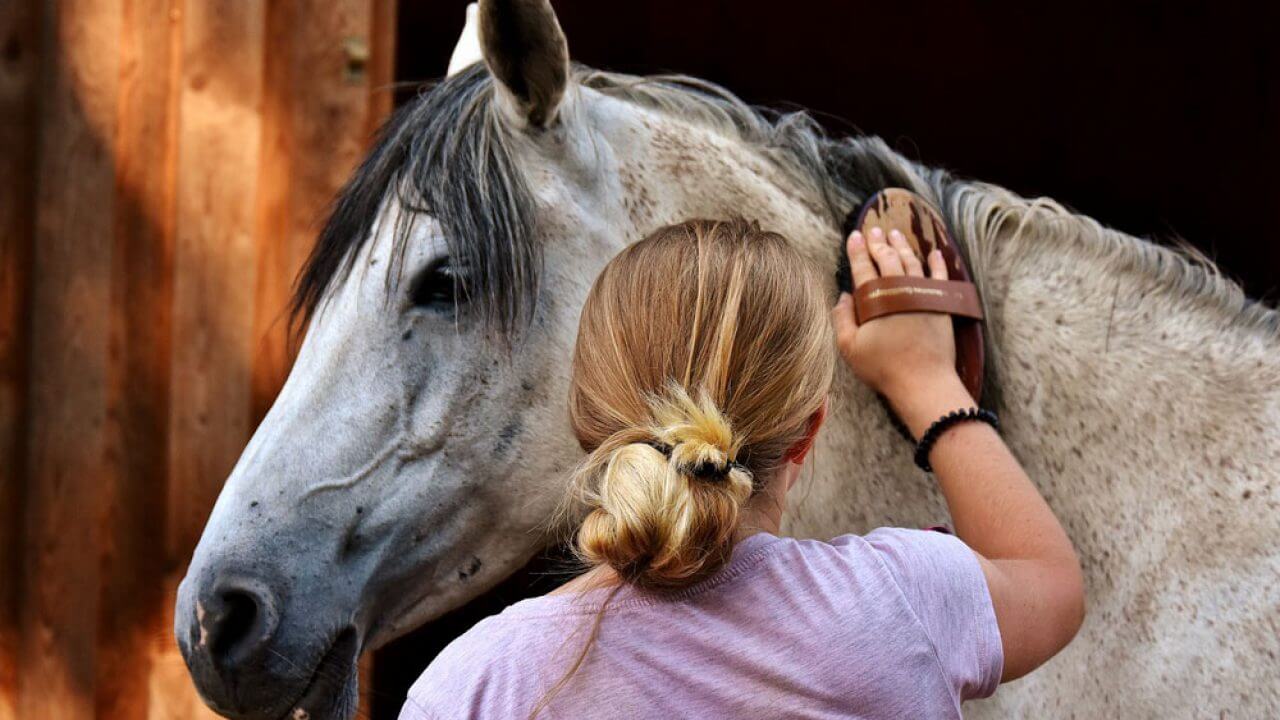As horses age, their bodies undergo a myriad of transformations. One of the most notable is the change in their metabolism. Understanding senior horse metabolism changes is crucial for anyone involved in equine care, whether you’re a seasoned equestrian or a new horse owner. This knowledge not only helps in maintaining the health of your equine companion but also ensures they enjoy a high quality of life in their golden years.

What Constitutes Metabolism in Horses?
Metabolism in horses, as in all living beings, refers to the chemical processes that occur within their bodies to maintain life. It involves the conversion of food into energy, as well as the building and repair of tissue. As horses grow older, these processes can become less efficient, leading to notable changes in their physical condition and energy levels.
The Aging Process in Horses
The aging process in horses begins to visibly affect their metabolism usually around the age of 15. However, some horses may show signs earlier or later. These changes can manifest as weight loss, decreased energy, or difficulty maintaining muscle mass. A thorough understanding of these changes is essential for providing the best care.
Signs of Metabolic Changes
Some common signs that a horse is experiencing metabolic changes include a dull coat, loss of muscle tone, and weight fluctuations. Additionally, older horses may exhibit changes in behavior, such as increased lethargy or decreased interest in activities they once enjoyed.
Factors Affecting Metabolism
Several factors can affect how a horse’s metabolism changes with age. These include genetics, diet, exercise, and overall health. By understanding these factors, caretakers can better manage and mitigate the effects of aging.
Genetic Predispositions
Just like humans, horses can inherit genes that predispose them to certain metabolic conditions. This includes conditions like Cushing’s disease or equine metabolic syndrome, which can significantly impact a horse’s overall health.
Diet and Nutrition
A well-balanced diet is crucial for maintaining a healthy metabolism in senior horses. As they age, horses may require changes in their diet to ensure they are receiving the necessary nutrients. For more information, consider visiting the British Horse Society for expert advice.
Common Metabolic Disorders in Senior Horses
As horses age, they can become susceptible to certain metabolic disorders. These include insulin resistance, equine metabolic syndrome, and Cushing’s disease. Recognizing the symptoms of these disorders early can lead to more effective management and treatment.
Insulin Resistance
Insulin resistance is a condition where the body’s cells become less responsive to insulin, leading to elevated blood sugar levels. This can result in weight gain, laminitis, and other health issues.
Equine Metabolic Syndrome
This syndrome is characterized by obesity, insulin resistance, and an increased risk of laminitis. Managing this condition often involves dietary changes and increased exercise.
Managing Metabolic Changes in Senior Horses
Proper management of metabolic changes involves a combination of diet, exercise, and regular veterinary care. By closely monitoring your horse’s health, you can make necessary adjustments to their care regimen.
Dietary Adjustments
Adjusting a senior horse’s diet is often necessary to accommodate their changing nutritional needs. This may include incorporating feeds that are higher in fiber and lower in sugar and starch.
Regular Exercise
Exercise is crucial for maintaining muscle mass and promoting a healthy metabolism. Tailoring an exercise routine to your horse’s abilities can help keep them fit and active. For guidance, check out our article on exercise for older horses.
The Role of Veterinary Care
Regular veterinary check-ups are essential for early detection and management of metabolic changes. A veterinarian can provide valuable insights and recommend specific interventions tailored to your horse’s needs.
Routine Health Assessments
Routine health assessments can help identify any emerging issues early, allowing for timely intervention. These assessments should include blood tests to monitor metabolic markers.
Holistic Approaches to Metabolic Health
In addition to traditional methods, some horse owners choose to incorporate holistic approaches to support their horse’s metabolic health. This can include supplements, acupuncture, and other alternative therapies.
Supplements for Aging Horses
There are various supplements available that can support metabolic health in senior horses. These often include ingredients like omega-3 fatty acids, antioxidants, and joint support compounds.
Creating a Supportive Environment
Providing a supportive environment is crucial for the well-being of senior horses. This includes ensuring they have access to adequate shelter, comfortable bedding, and a calm, stress-free environment. For tips on creating the ideal living space, read about the best bedding for senior horses.
Stress Reduction
Reducing stress is important for maintaining a healthy metabolism. This can involve minimizing changes in routine and providing companionship.
Conclusion
Understanding senior horse metabolism changes is key to providing optimal care for aging horses. With the right knowledge and resources, you can ensure your equine companion enjoys a healthy and fulfilling life. For more tips on caring for aging horses, explore our guide on pasture management.

FAQs
What are the first signs of metabolic changes in senior horses?
Early signs can include weight loss, a dull coat, and decreased energy levels. Regular veterinary check-ups can help detect these changes early.
How can I support my horse’s metabolism through diet?
Provide a balanced diet rich in fiber and low in sugars and starches. Consider consulting with a veterinarian or equine nutritionist for personalized advice.
Is exercise important for senior horses?
Yes, regular exercise helps maintain muscle mass and supports a healthy metabolism. Tailor the exercise routine to your horse’s capabilities and consult with a professional if needed.
This article contains affiliate links. We may earn a commission at no extra cost to you.
